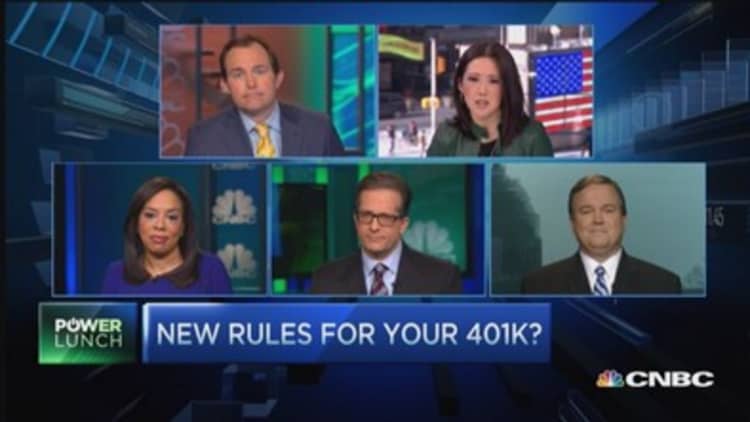


The recession is behind us, employment is on the mend and some large employers are doing their part to kick-start wage growth. Americans should be feeling financially secure, right?
Guess again.
New research by the Pew Charitable Trust reveals that more than half of Americans are unprepared for financial emergencies. A third of the survey respondents said they have no savings, and more than half either spend more than they make or break even.
The findings indicate a high level of financial insecurity more than five years after the recession ended, according to Diana Elliott, research manager for financial security and mobility at Pew.
People are "trying to put out fires in the short term, rather than being able to focus on the long term," she said.
The researchers surveyed 7,000 households and led focus groups in Phoenix, Boston and Orlando, Florida. Despite the geographic diversity, views of what constitute financial security were consistent, Elliott said. People defined financial security as having enough money to pay bills with a little left over for extras or savings, and only limited concerns about how to make ends meet.
"It is surprising that half of Americans feel financially insecure, given that it is such a modest definition," she said.
Another sign of financial insecurity: 92 percent of respondents said they valued financial stability more highly than upward mobility—up noticeably from 85 percent three years earlier, Elliott said.
Part of the insecurity may stem from income variability in many households. More than 8 in 10 respondents said they suffered a financial shock in the last year, and 55 percent of them said that made it hard to make ends meet.
Other research has also pointed to low levels of savings and rainy day funds. A recent survey by Bankrate, for example, found that 24 percent of Americans had more credit card debt than emergency savings.
Read More Look who's living on the financial edge
Americans' short-term financial concerns appear to be affecting their ability to plan for their long-term future, or at least to think about a time when their financial pressure might abate. Some 21 percent of the Pew survey respondents said they are not planning to retire, and only 26 percent had a traditional notion of retirement.
"This is again something that we heard when we talked to people in the three different cities: a great deal of sophistication about paying bills in the short term, but not as much thought about long-term retirement preparedness," Elliott said.
There was one piece of good news in the research. Despite the concerns expressed over specific issues, 56 percent of the respondents rate their financial situation favorably.
Given Americans' worries about short-term finances, though, and their lack of a significant financial cushion, it's worth wondering just what unfavorable would look like.


